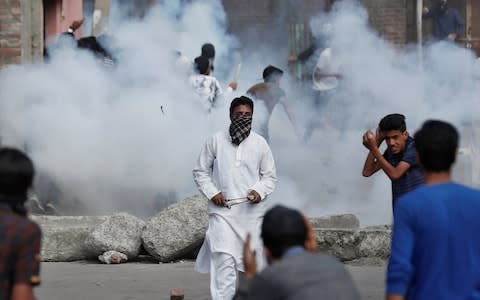'Political vacuum' in Kashmir after crackdown by Indian authorities

Senior members of every political party in Kashmir have reportedly been targeted in a crackdown by the Indian authorities since the state’s autonomous status was revoked three weeks ago.
It had been thought that only high-profile Kashmiri figures, such as former Chief Ministers Mehbooba Mufti and Omar Abdullah, were among the roughly 4,000 people detained or placed under house arrest.
However, it is now being alleged that the top five layers of leadership from every political party have been arrested to remove any channels of resistance for Kashmiris.
The Indian Express newspaper documented politicians from both key political parties in Kashmir such as the People’s Democratic Party and those from smaller grass-root organisations like the J&K People’s Movement being detained en masse.
This reportedly includes almost every former state minister, the Deputy Mayor of Srinagar and even district and neighbourhood-level activists.
Despite the arrests there have been sporadic protests across Kashmir since the Indian Government revoked Article 370 and Article 35A of its constitution on August 5.
The controversial move means that Kashmir – India’s only Muslim-majority state – will fall under central government rule for the first time since independence in 1947.

It also means that non-Kashmiris are able to buy land and property, as well as seek employment, in the state, leading to fears of demographic change and inter-communal violence.
The Indian Government argues the move is necessary to end a violent insurgency that has fulminated since 1989 between militants pursuing independence and the Indian state.
It has justified the complete communications blackout and curfew imposed as a means to reduce violent opposition to the removal of Kashmir’s self-rule.
Its political crackdown has not just been limited to those living within the Kashmiri state.
On Saturday, a delegation of opposition politicians led by former Congress party leader Rahul Gandhi were detained on arrival at Srinagar Airport and sent back to Delhi.
The group had been planning to investigate living conditions in Kashmir after reports of the Indian authorities torturing residents and of hundreds of civilians sustaining injuries from pellet guns used by the Indian Army.

